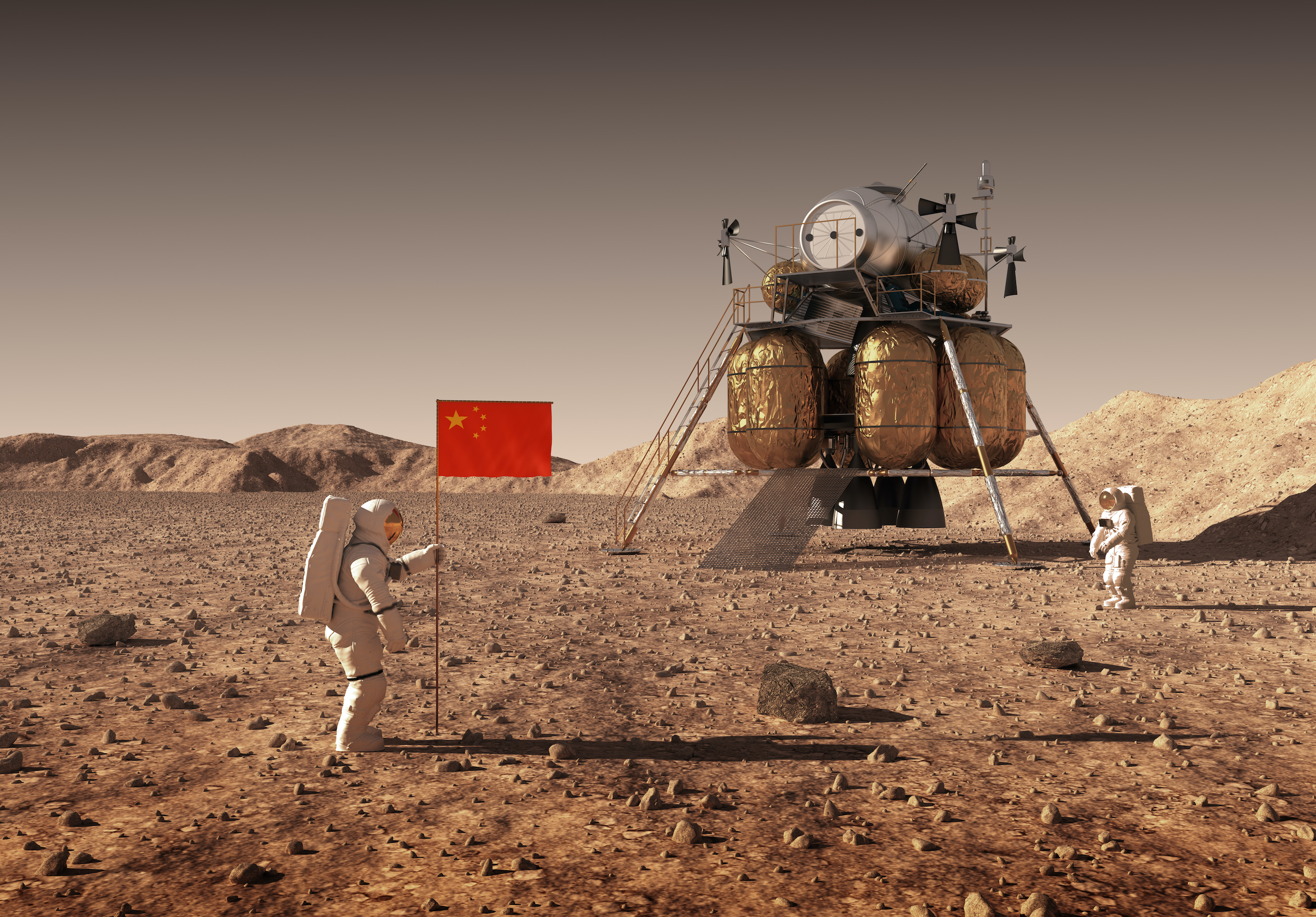China’s history of exploration and commercialization of space began around the same time the USSR and the USA were locked in their infamous Space Race. It was after the first US moon landing that China, then under Mao Zedong, moved from working solely on launching ballistic missiles, to working on a program to ultimately launch a manned crew in China’s effort not to be left behind. But no one noticed as the focus was on the US vs. USSR Cold War competition.
In the 1970s, the Chinese government developed a series of rockets called the Long March 1. It was with this series that China successfully launched its first in a series of satellites into orbit. Overall, the series was widely considered successful. Project 714, adopted in 1971, was to be the first Chinese manned launch into space, but the project was canceled due to political turmoil. After the denouncement of the Cultural Revolution, most space programs in China halted altogether.
While China continued development on the Long March rocket series and other satellite missions through the 80’s and 90’s, they were largely unsuccessful.
That all changed in 2003 when China became the third nation in the world to send a successful, crewed rocket into space aboard the Shenzhou 5 and return them safely to Earth. They have not stopped doing so since and Chinese space missions have taken off like, well, a rocket.
In 2011, China launched their first space station, the Tiangong 1. While it was compatible with the International Space Station, though the Chinese government was barred from taking part in the ISS missions over concerns that their space program had ties to their military, a U.S. fears that continue to this day to overshadow China’s program and prevents meaningful cooperative efforts. Two crewed rockets launched in 2011 and 2012 successfully docked with Tiangong 1. When Tiangong 1 was retired in 2016 (and re-entered Earth’s atmosphere in 2018), China launched Tiangong 2. The first manned crew boarded in the same year and it has been manned ever since.
While all of this was happening and largely ignored by Western media, China had a separate Chinese Lunar Exploration Program in motion. In 2007, China’s Chang’e 1 became the first Chinese and fifth-ever lunar orbiter. Chang’e 2 later became China’s second lunar orbiter. From 2013-2018, China’s lunar program progressed and included soft landings on the Moon by Chang’e 3 and 4, both with lunar rovers. Most importantly, Chang’e 4 landed on the far side of the Moon, a feat no other nation has achieved. China’s next missions to the Moon will the Chang’e 5-T1 and 5, allegedly intended to collect samples. Then, from 2023-2027, China plans to begin building a research station on the Moon’s south pole with the stated intention of researching natural resources available on the Moon.
It is not entirely clear what China’s Moonbase will be used for in the long-run. Perhaps it will simply be a base for research, or perhaps it will have military intentions. After all, the US has a long-running suspicion and still has a policy against NASA employees working with any Chinese astronauts.
But China is interested in more than the Moon. Its Mars program became a reality on July 22, 2020 when it launched the Tianwen-1 atop a Long March 5 rocket on a mission to soft-land on Mars in February 2021. Interestingly, the Tianwen-1 includes an orbiter, a lander, and a rover. The US has never accomplished that hat trick.
In contrast, the US last landed softly on the Moon in 1972 and has never landed on the far side. While the US is planning a new manned mission to the Moon and eventually one to Mars, they are years away. There is a very strong possibility – if not probability – that Chinese astronauts will beat the US to both celestial bodies.
Meanwhile, China advances are undaunted, and launched more rockets into space in 2019 than any other nation in the world with plans to repeat that feat in 2020. And don’t forget China’s lead in artificial intelligence and computer learning. Put it all together and the conclusion is inescapable.
The United States is losing the space race to China. Respected analysts agree.
Yet all of this has not been reported by mainstream media. Perhaps they’re waiting to include it in the obituaries.
